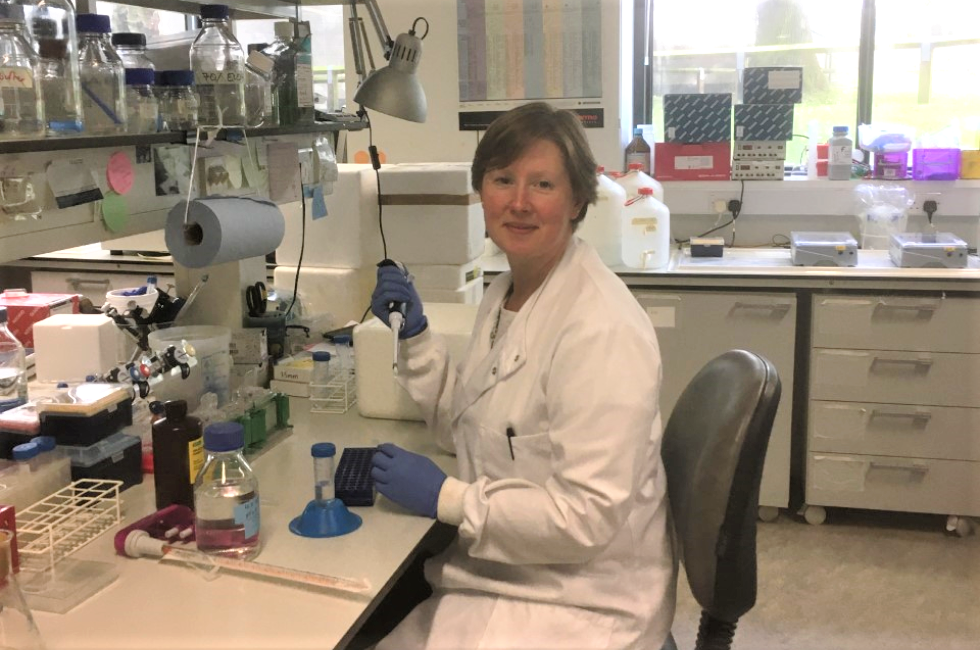Since March, we’ve been working closely with our award-holders to work out the impact of lockdown on their projects and programmes and do what we can to support them. There’s been such a variety of experience. While some researchers have been able to work very effectively from home, those with lab-based projects found it to be a particularly challenging time. But we’ve also been hearing how, even if they could not access the lab to work on their projects, they’ve been making their contribution to the national effort to manage the impact of COVID-19. We’ve been very pleased to be able to support them in this.
Here’s Tracey Swingler’s story. Tracey is Senior Research Associate and team mate of Paige Paddy, who featured in last blog post in this series and is working on a £1M five year programme grant we funded in 2016. The programme is a partnership between teams at Newcastle University and the University of East Anglia (UEA) and is investigating the role of microRNAs in treating osteoarthritis. Tracey is part of the UEA team.
My first day was intense and my training was very much on the job, observing the biomedical scientist, learning and absorbing as much information as quickly as I could
Tracey Swingler, University of East Anglia
As it became apparent that the whole country was going into lockdown we had to face the reality that our experiments also had to go on hold. Meanwhile the NHS virology labs were facing the busiest and most challenging times even seen. To keep up with demand for the Covid-19 testing the staff in the virology lab were working long shifts with very few breaks. With the numbers for testing increasing daily, this wasn’t sustainable for the department. It was obvious that they needed to recruit more staff and fast. A call went out across UEA and the Norwich Science Park for scientists with RNA extraction and real-time Polymerase Chain Reaction (PCR) experience to volunteer in the Virology Department. I was the first volunteer to be called up and started my training in early April. I already had the relevant molecular biology skills and experience handling human tissues I just had to learn to operate the RNA extraction platforms and real-time PCR robots as well as the robust systems in place to avoid human error in the sample processing. My first day was intense and my training was very much on the job, observing the biomedical scientist, learning and absorbing as much information as quickly as I could. The systems already in place for the routine seasonal flu screening were streamline, but nothing could have prepared us for the volume of samples for Covid-19 testing coming through by the height of the pandemic. The work was constant and relentless, but we all rose to the challenge. As I became more familiar with all the processes I was able to help train new volunteers coming through. As more volunteers were trained up, shift patterns could be worked out allowing testing to operate around the clock.
As research scientists, the work we do rarely has such an immediate impact on society. It felt great that my skills could be used to such immediate effect and I felt privileged to be able to work alongside the NHS biomedical scientists in such unprecedented times.
We’re now working out our support package for the programme team as they work out their respective plans to return to work in the lab.

